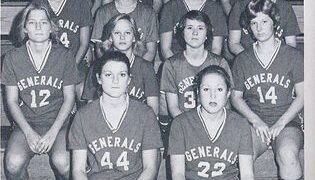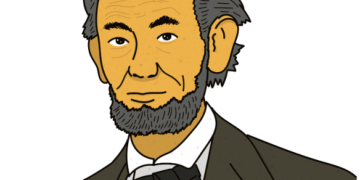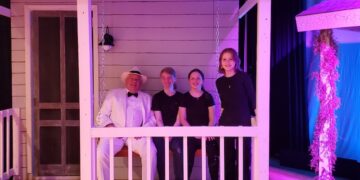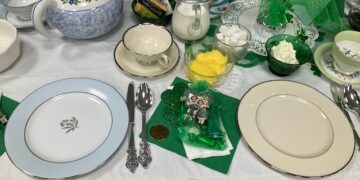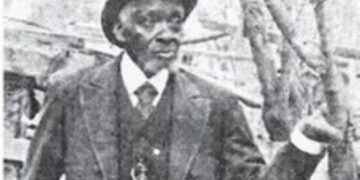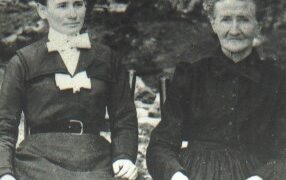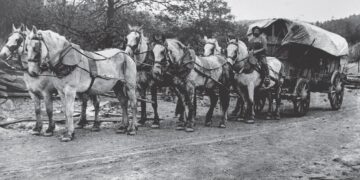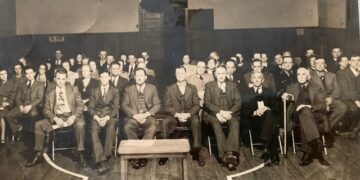Susie Yang and White Ivy
I first discovered Susie Yang and her debut novel, White Ivy (2020), at Ollie’s where I picked it up in the fiction section. At the time, I had no idea that the novel had created considerable sensation after its publication. Though yet to be cast and filmed, the novel was bought by Shonda Rimes, of Grey’s Anatomy and Bridgerton fame. To get film rights to the novel, Rimes outbid seven other producers.
If you’re looking for an Amy Tan novel, like The Joy Book Club, this one is not for you. With White Ivy, Yang transcends the categories of both immigrant tale and romance novel to create a book with a remarkable anti-heroine. Ivy Lin, as created by Yang, is a woman of blind ambition similar to Fitzgerald’s Jay Gatsby; however, Gatsby is a true dreamer, looking to realize ultimate human destiny, while Ivy operates out of almost pure narcissism.

Yang has said that the main influence on her creation of Ivy was Tom Ripley, the almost demonic character in Patricia Highsmith’s novel, The Talented Mr. Ripley. She further says, “I knew that I wanted to create a kind of an anti-hero character and somebody with an unusual background who would be underestimated based on her appearance and background.” In another interview she says she enjoys “reading stories about people who break the rules, or who kind of live by their own criteria.” Anti-heroes, in general, appeal to Yang: notice that she says nothing about her character’s being Asian.
Susie Yang and Ivy Lin share early backgrounds. Both women, born in China, are the daughters of immigrant parents who came to the US leaving their two-year-old daughters behind to be raised by grandmothers. Yang’s father left China to attend graduate school at Brigham Young University and to become a bio-chemist. Both girls do not see their parents until they are five years old, though the fictional Ivy travels to the US alone while Yang’s parents returned to China to retrieve her. Both, too, have younger brothers, and, finally, both have grandmothers who give much advice on how to behave in the US; Yang, unlike her fictional counterpart, apparently followed much of this advice.
During her early years, Yang and her family lived in Denver, Baltimore, and Hockessin, Delaware, before settling in suburban New Jersey. By the time she entered college she had attended eight different schools. She was a reader, a strong student, and an obedient daughter. She says, “I regarded my mom and dad with caution and sometimes fear. To be afraid of one’s parents was considered a natural, even healthy quality in Chinese culture. It meant you respected your elders and obeyed them.”
Yang earned a doctorate in pharmacy at Rutgers University, even though part the way through the program, she realized that she would never become a pharmacist. After college, she moved to San Francisco, where, she has said, she taught 20,000 people how to do computer coding, but her ultimate goal was to become a writer. Creative writing courses in the West led her to White Ivy. Today she lives in Cambridge, UK with her husband, Alex, and their young daughter.
“Ivy Lin was a thief but you would not know it to look at her” Is the first line of the novel—it’s a description that pretty much fits Ivy Lin throughout the work as she evolves as an amoral or even immoral woman. As a child she steals; later she becomes a sexual profligate who pretends to be a virgin at every encounter; still later, her behavior is even worse. Ivy looks ordinary but a furor resides within her. Fearlessly and selfishly ambitious, she will do anything to achieve status and stability; however, she never achieves a real sense of her own identity; she never learns what really matters in life though Yang has her say near the end of the book that family is more important than all else. This realization, I suspect, is more Yang’s than Ivy’s.
Living with her parents in New Jersey, the fictional Ivy is restless from the beginning of her reunion with them. Both pampered and trained by her grandmother, Ivy rebels against conventional Chinese values. Her parents aim for her to become a doctor, but Ivy is an indifferent student, at best, who feels alienated in the exclusive private high school they chose for her. Her only confidante is Roux Roman, a slightly older boy in the neighborhood, who comes from a rough background.
In school, she idolizes Gideon Speyer, an upper class boy, who, when she is only fourteen, invites her to an overnight birthday party at his home. With Roux’s help, she “steals” an expensive gift for him and tricks her parents into letting her attend the party. When caught, she seeks revenge against them by losing her virginity to Roux. Feeling completely dishonored, the Lins send her back to China for the summer and move the family to another town.
Time passes. Ivy, now in her mid-twenties, has managed to attend a private women’s college near Boston and become an elementary school teacher there, even though she doesn’t like children. Through one of her students, she is reunited with Gideon Speyer’s sister, Sylvia, who reunites Gideon and Ivy. Having floundered in earlier relationships and still remembering her teen infatuation with Gideon, Ivy decides to marry him in order to rise in the social world and to gain stability to her life. At a most inopportune moment, Roux Roman returns as Sylvia’s boyfriend. Ivy subsequently courts Gideon but conducts a passionate affair with Roux. Expect no happy endings here; violence erupts, secrets are revealed, Ivy “gets her man,” but with bleak future prospects .




